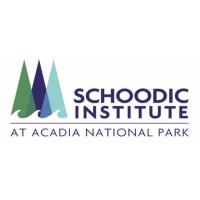-
Schoodic Institute announces 2025 Acadia Science Fellows
May 20, 2025Schoodic Institute announces 2025 Acadia Science Fellows
Researchers to expand North American datasets on birds and monitor forest microclimates in Acadia National Park
WINTER HARBOR - Two scientists have been awarded Acadia Science Fellowships to conduct research in Acadia National Park. An initiative of Schoodic Institute at Acadia National Park supported by the David Evans Shaw Family Foundation and Sibley-Saltonstall Charitable Foundation and individual donors, Acadia Science Fellows inform management and protection of Acadia National Park resources.
The 2025 Acadia Science Fellows are:
- Colby Bosley-Smith, doctoral student at the University of Maine
- Veronica Winter, doctoral student at The Pennsylvania State University
"Acadia is a place for conservation innovation, and the Acadia Science Fellows play a key role in developing and translating science into action," said Schoodic Institute President & CEO Nicholas Fisichelli. "We are excited to have Colby and Veronica as part of this collaboration to understand and protect the forests and birds of Acadia."
The Acadia Science Fellowship is building on the success of Second Century Stewardship, which supported 20 fellows between 2016 and 2023. “As an entrepreneur and change maker, I understand that business-as-usual is never sustainable,” said Second Century Stewardship founder David Shaw. “To protect places like Acadia, conservation must be innovative and led by new science tools, data, and partnerships – exactly the work these new fellows are leading.”“Acadia National Park is deeply cherished by my family and we want to see this treasured part of America’s heritage protected for future generations,” said Susan Saltonstall Duncan. “Our family foundation helps support this fellowship because it is focused on supporting conservation and connections that will have long-lasting positive impacts on the places we care about most.”
Since Acadia’s Research Learning Center was established on a former Navy Base at Schoodic Point 25 years ago, the nonprofit partner organization that is now Schoodic Institute has supported and expanded capacity for management-relevant research in and beyond the park. Acadia’s diverse mix of landscapes, elevations, and wildlife habitats provides an ideal setting for developing effective methods for protecting and restoring habitats, from salt marshes to mountain summits. Lessons learned from research in Acadia are shared with managers of parks and conserved lands and waters across Maine and the National Park System.
More about the fellows and their research:
Colby Bosley-Smith, a forest ecologist, plans to set up 60 sensors throughout the park to monitor microclimate, the particular conditions underneath the canopy that affect tree seedlings and saplings. Over the course of three years, the sensors will record variables like soil moisture, soil temperature, and air temperature in forests of red spruce, the most common tree in Acadia. Additional data will come from the Northeast Temperate Network, a National Park Service Inventory & Monitoring Program that conducts long-term monitoring of forest health at 176 sites at Acadia.
Colby Bosley-Smith, pictured here, is a 2025 Acadia Science Fellow. Photo provided by Schoodic Institute.
“Temperatures on the coast are warming faster than interior Maine, so we expect red spruce to lose habitat on the coast quicker,” according to Bosley-Smith. “Some climate models have shown that it won’t have habitat in the next fifty years – which is hard to believe, because if you go to coastal spruce forests now, they seem to be thriving.” Understanding understory conditions will inform management actions to ensure Acadia’s forest future.

Veronica Winter, a quantitative ecologist, will conduct research to create a more comprehensive monitoring program for songbirds in Acadia. Having previously immersed herself in Acadia National Park's ecosystems as part of the Acadia Bug Project team in the Summer of 2018, she recognized Acadia as an ideal space for contributing to ongoing songbird research. Winter’s established connection to the park completed the foundation for this project, bringing together institutional support, community engagement, and scientific expertise in an extraordinary convergence of opportunity. Winter will set up mist nets, which safely trap birds, and collect data on their demographics and condition before releasing them. She will also document bird behavior, and compare these metrics to data from across North America in the Monitoring Avian Productivity and Survivorship (MAPS) program of the California-based Institute for Bird Populations. “MAPS is a broad-scale effort, but doesn’t include important aspects of local bird population health, including behaviors such as nesting, feeding, and territorial displays,” said Winter. “Can we add to Acadia’s MAPS data to gain deeper insights about how birds are doing within the park? That could help inform conservation strategies for individual species, such as habitat improvements or nest protections.”

Veronica Winter, pictured here, is a 2025 Acadia Science Fellow. Photo provided by Schoodic Institute.Schoodic Institute at Acadia National Park
-
Sarah Luchini Marketing Specialist
- May 20, 2025
- (207) 288-1331
- Send Email
-
 Plan Your Experience
Plan Your Experience- Stay
- See & Do
- Eat & Drink
- Know Before You Go
- Gatherings
- Experiences
-
It all starts with a visit...



